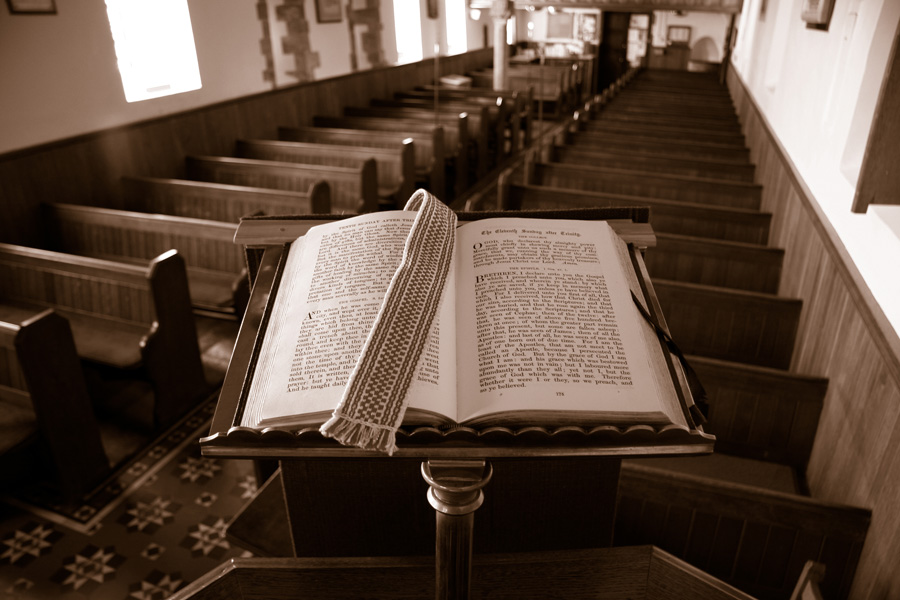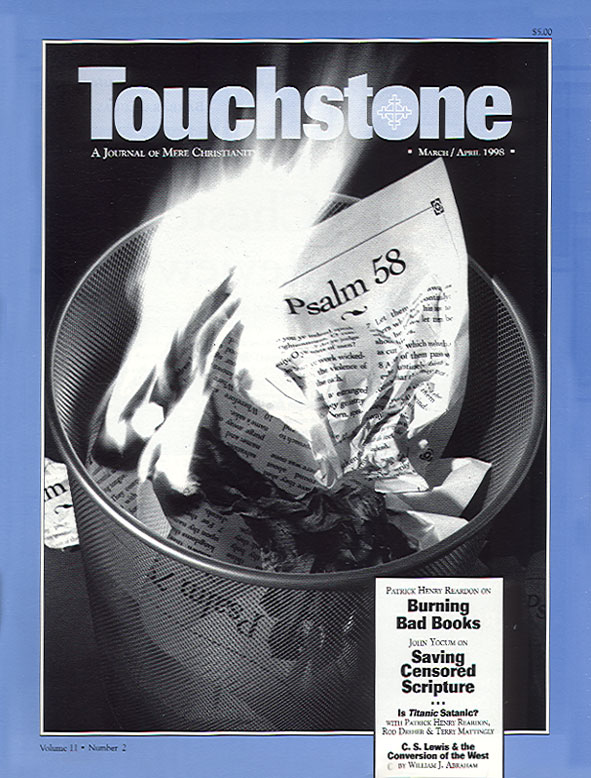C. S. Lewis & the Conversion of the West
The Value of C. S. Lewis for the Christian Mission Today
by William J. Abraham
C. S. Lewis was one of the two internationally famous theologians which Ireland has produced in its long embrace of the Christian tradition. The other was John Scotus Erigena. I find Lewis an intriguing figure as I seek to come to terms with what it means to engage in evangelism in our contemporary Western culture. Even a cursory reading of Lewis reveals a network of proposals which deserve the closest attention. In fact, it is a great pity that those interested in the conversion or evangelization1 of the West have paid next to no attention to Lewis and what he has to say to us. I can think of at least two reasons why this is the case. First, those interested in evangelism have tended to restrict evangelism either to proclamation or to numerical church growth. In both cases the help that Lewis can tender has been totally shut out as irrelevant. Lewis is seen either as a useful pre-evangelist in his role of apologist, or he is construed as a kind of valuable intellectual nursemaid who can help retain converts once they have accepted the good news, committed themselves to Christ, and joined the church.
Secondly, those interested in Lewis have tended to be so consumed with the Lewis phenomena—its origins, its associates, its intrinsic content and value—that they have rarely explored the great potential Lewis represents in the field of evangelism. Lewis has in fact both formally and materially much to say to it and I hope that someday someone will take up this subject and give it the extended treatment it deserves.
I think there are two hands in evangelism, one where we reach out to share, the other where we reach out to receive. With the one hand we reach out to declare with a passion and flair the good news of the arrival of God’s kingdom in Jesus Christ. With the other hand we reach out with intelligence and love to receive those who respond to the gospel, seeking as best we can to ground them in the fullness of God’s rule on earth. Elsewhere I have spelled out the grammar and practical content of this vision of evangelism.2
Here I intend to consider how we should construe the West that we are seeking to convert. I perceive the modern world as thoroughly fragmented and chaotic. In fact, to speak of a single modern world is an oxymoron. Our Western world is a world of ghettos bound together by airline traffic, democratic capitalism, T-shirts, and the ideology of pluralism. Whatever it is we hold in common, what strikes me are the differences that confront us in the particularities of our subcultures. Even to speak of our culture as “postmodern,” whatever its value for certain purposes, is a risk, for such talk posits a monolithic generalization which is deeply distorting in the field of evangelism. If we look at our culture as a whole, we are confronted by a discord of voices, of worldviews, of moral traditions, of lifestyles, and of inner informal logics which cannot be flattened out into a comprehensive theoretical analysis—whether intellectual, economic, or sociological.
Interestingly, this situation leads automatically to the first lesson Lewis has to teach us about evangelism. Our first task is to acknowledge the vagaries and diversity of our culture. To be sure, Lewis was well aware of the global trends of highbrow culture. He had no hesitation in making generalizations about the cultural elites he knew. Yet, this was tempered by a refreshing realism about our culture. Nowhere is this more aptly stated than in his essay, “Revival or Decay.”3 Lewis there pokes fun at the headmaster who reveled in optimistic generalizations about religion in the West. Lewis aptly ruminates on the “approaches” to “religion” he has actually met.
An anonymous postcard tells me that I ought to be flogged at the cart’s tail for professing to believe in the Virgin Birth. A distinguished literary atheist to whom I am introduced mutters, looks away, and swiftly walks to the far end of the room. An unknown American writes to ask me whether Elijah’s fiery chariot was really a Flying Saucer. I encounter theosophists, British Israelites, spiritualists, pantheists. Why do people like the Headmaster always talk about “religion”? Why not religions? We seethe with religions. Christianity, I am pleased to note, is one of them.
Is there a monogeneous “West”? I doubt it. Everything that can go on is going all round us. Religions buzz about us like bees. A serious sex worship—quite different from the cheery lechery endemic in our species—is one of them. Traces of embryonic religions occur in science-fiction. Meanwhile, as always, the Christian way too is followed. But nowadays, when it is not followed, it need not be feigned. That fact covers a great deal of what may be called the decay of religion. Apart from that, is the present so very different from other ages of “the West” from anywhere else?4
We can capture the main point here by simply suggesting that we are back in the position of the church of the first three centuries. Christians live in a world that is radically pluralistic and fragmented. For the most part the age of Christendom is gone, and we must now happily acknowledge our marginal, minority, and even sectarian status in the conflict of ideas and ideologies.
The second lesson Lewis has to teach us lies openly in the neighborhood of the first. It is this: in seeking to convert the West we must take our bearings concerning the content of the gospel not from our culture but from the great eternal verities of the gospel itself. To take the negative side of this, we might say that to take our bearings from our culture as presently constituted is to commit suicide. It would mean allowing the gospel to become the mirror of a set of contradictory alternatives which would willy-nilly entail its fragmentation and dissolution. This does not mean that we be insensitive to the particularities of our subcultures; much less does it mean that we become uninformed or ahistorical in our thinking about our culture. It simply requires us to be ruthlessly honest about the consequences of modernity. Its fragmentation may provide an opportunity for evangelization which may surprise us, but it would not have surprised Lewis. This has already happened in Anglo-American philosophy. Witness the extraordinary spectacle of a minority of significant, contemporary philosophers who got enough distance from Christianity in their training to treat it as an amazing surprise in the welter of alternatives available. Likewise, in certain circles it is possible for distinguished scholars in various fields to give apologetic lectures on behalf of Christianity precisely because it is allowed equal time alongside, say Marxism, radical feminism, deconstructionism, Dianic witchcraft, and the like.
subscription options
Order
Print/Online Subscription

Get six issues (one year) of Touchstone PLUS full online access including pdf downloads for only $39.95. That's only $3.34 per month!
Order
Online Only
Subscription

Get a one-year full-access subscription to the Touchstone online archives for only $19.95. That's only $1.66 per month!
bulk subscriptions
Order Touchstone subscriptions in bulk and save $10 per sub! Each subscription includes 6 issues of Touchstone plus full online access to touchstonemag.com—including archives, videos, and pdf downloads of recent issues for only $29.95 each! Great for churches or study groups.
Transactions will be processed on a secure server.
more on C. S. Lewis from the online archives
more from the online archives

8.4—Fall 1995
The Demise of Biblical Preaching
Distortions of the Gospel and its Recovery by Donald G. Bloesch
calling all readers
Please Donate
"There are magazines worth reading but few worth saving . . . Touchstone is just such a magazine."
—Alice von Hildebrand
"Here we do not concede one square millimeter of territory to falsehood, folly, contemporary sentimentality, or fashion. We speak the truth, and let God be our judge. . . . Touchstone is the one committedly Christian conservative journal."
—Anthony Esolen, Touchstone senior editor











